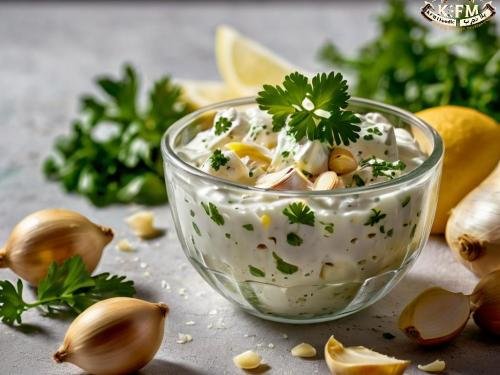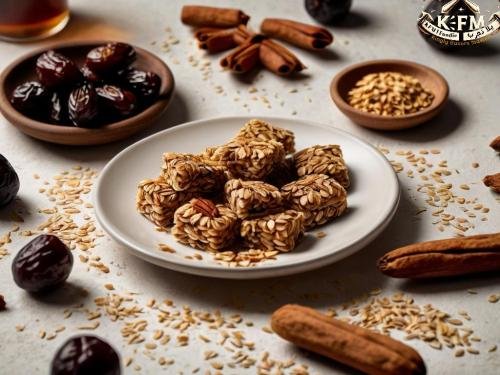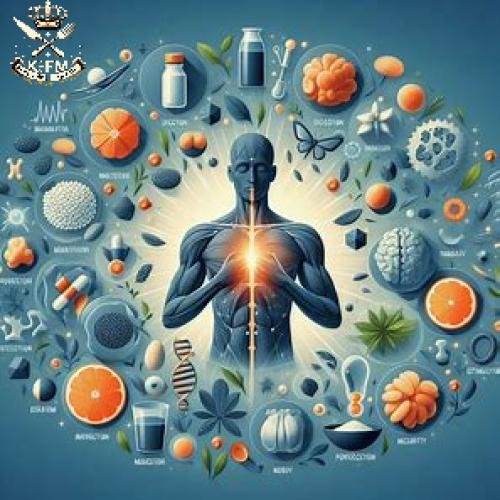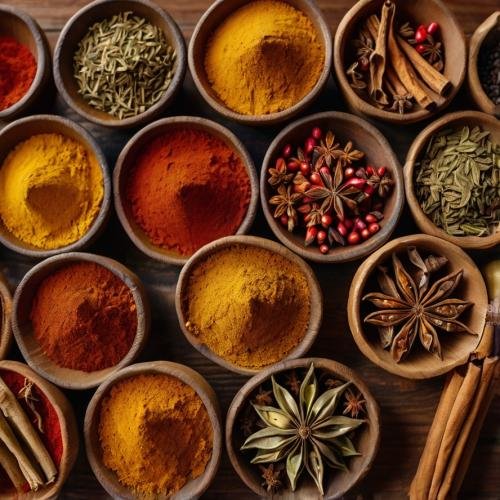Cholesterol is a fatty substance essential for the body, as it contributes to the formation of cells and the production of hormones. However, it can become dangerous to health if its levels rise abnormally. While good cholesterol (HDL) is beneficial for heart health, bad cholesterol (LDL) can lead to fat buildup in the arteries, increasing the risk of heart diseases. In this second part of the article, we will discuss the relationship between cholesterol and nutrition, highlighting foods that positively or negatively affect blood cholesterol levels and how to balance them for optimal health.
Our topic today addresses the sixth and final part of the cholesterol series, where we will discuss the relationship between cholesterol and nutrition. Today, our focus will be on foods that may cause an increase in bad cholesterol (LDL) levels in the blood.
Nutritionists and health experts nowadays believe that some foods play a significant role in increasing bad cholesterol levels, and they recommend avoiding them completely or reducing their consumption to the lowest possible level. Some of these foods include
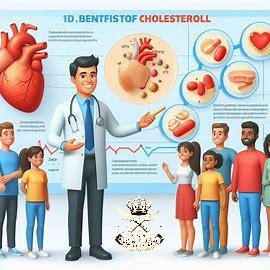
Five types can be mentioned:
- Red meats and fatty poultry.
- Fatty dairy products and their derivatives.
- Bird eggs of all kinds.
- Foods fried in animal fats or hydrogenated oils.
- Processed and canned foods that contain large amounts of sugar, salt, and fats.
These foods, when consumed excessively, increase the level of bad cholesterol in the blood due to their content of saturated fats, which are the main cause of high bad cholesterol levels, leading to an increased risk of arteriosclerosis and heart diseases.
Meal Preparation Tips:
To avoid the impact of cholesterol on our health, these foods can be used healthily by following some tips when preparing meals:
- Red meats and fatty poultry: It is preferable to choose lean meats such as chicken breasts or low-fat red meats, like veal. It is better to cook them by grilling or boiling instead of frying.
- Fatty dairy products and their derivatives: Replace fatty dairy products with low-fat or fat-free milk. You can also use low-fat or Greek yogurt instead of fatty cheese to prepare healthy meals.
- Bird eggs of all kinds: It is preferable to eat egg whites instead of yolks as they contain less cholesterol. Boiled or scrambled eggs can also be eaten using a small amount of vegetable oil instead of frying.
- Foods fried in animal fats or hydrogenated oils: Avoid foods fried in animal fats or hydrogenated oils, and instead, use olive oil for frying or opt for steaming or grilling to preserve nutritional value and reduce harmful fats.
- Processed and canned foods: It is best to avoid processed and canned foods that contain large amounts of sugar, salt, and fats. You can prepare meals at home using fresh ingredients, reducing salt and sugar amounts, and using healthy oils like olive oil or canola oil.
Frequently Asked Questions
Can psychological stress affect cholesterol levels?
Yes, psychological stress can directly affect cholesterol levels. When stressed, the body releases hormones such as cortisol, which can raise levels of bad cholesterol (LDL) and reduce levels of good cholesterol (HDL). Chronic stress may increase the risk of heart and artery diseases.
Do plant-based foods help in lowering cholesterol?
Yes, plant-based foods such as vegetables, fruits, and whole grains are rich in soluble fiber, which helps lower levels of bad cholesterol (LDL) and promotes heart health.
What are the best foods to improve cholesterol levels?
Foods containing omega-3 fatty acids, such as salmon and walnuts, as well as foods rich in fiber like oats, fruits, and vegetables, help improve cholesterol levels.
Can psychological stress affect cholesterol levels?
Yes, psychological stress leads to the release of certain hormones such as cortisol, which can increase levels of bad cholesterol (LDL) in the blood.
Can exercise improve cholesterol levels?
Yes, regular exercise helps improve cholesterol levels by raising good cholesterol (HDL) levels and lowering bad cholesterol (LDL) levels.
Is it better to completely avoid cholesterol in the diet?
It is not necessary to completely avoid cholesterol, but it is important to reduce foods high in saturated and trans fats, as these foods contribute to raising bad cholesterol levels.
How can good cholesterol (HDL) be increased?
- Proper Nutrition: Consuming foods rich in fiber, such as oats, vegetables, and fruits, helps enhance good cholesterol (HDL) levels.
- Physical Exercise: Aerobic exercises like brisk walking or cycling help raise HDL levels in the blood.
- Healthy Fats: Eating foods rich in omega-3 fatty acids, such as fatty fish (salmon, tuna) and nuts (walnuts, almonds), boosts good cholesterol levels.

Health effects of bad cholesterol (LDL):
High levels of bad cholesterol (LDL) can have serious health effects on the body. When LDL cholesterol levels rise, it starts accumulating on the walls of arteries, forming fatty deposits known as atherosclerosis. This accumulation leads to the narrowing of the arteries and reduced blood flow, which increases the risk of various health problems.
- Atherosclerosis: Atherosclerosis is one of the main consequences of high LDL cholesterol. When fats deposit on the walls of arteries, they cause them to harden and narrow, obstructing the flow of blood to vital organs like the heart and brain.
- Heart diseases: When blood flow to the heart becomes limited due to atherosclerosis, it can lead to a heart attack. This typically happens when the fatty deposits rupture, causing a sudden blockage in one of the coronary arteries.
- Stroke: The accumulation of bad cholesterol can also lead to blood clots, which cause blockages in blood vessels in the brain, resulting in a stroke.
Examples of Healthy Meals
Here are some examples of healthy meals that can be prepared using the mentioned ingredients in a healthy way while avoiding the increase in cholesterol levels:
- Red Meats and Fatty Poultry:
- Grilled Chicken Salad: Use grilled chicken breasts with a variety of vegetables such as tomatoes, cucumbers, and bell peppers, topped with a low-fat yogurt dressing.
- Beef and Vegetable Soup: Prepare a lean beef soup using low-fat veal and adding vegetables like carrots and celery.
- Fatty Dairy Products and Derivatives:
- Yogurt and Cucumber Salad: Use low-fat yogurt with fresh cucumber slices, and add fresh herbs like mint and parsley for extra flavor.
- Fruit Smoothie: Make a smoothie with fat-free milk and fresh fruits like strawberries or bananas for natural sweetness and flavor.
- Bird Eggs of All Kinds:
- Egg White Omelette: Use only egg whites to make an omelette with vegetables like mushrooms, tomatoes, and peppers, and add herbs for extra flavor.
- Boiled Egg Salad: Prepare a salad with boiled egg whites (no yolk), along with vegetables like arugula, tomatoes, and onions, and drizzle with a small amount of olive oil.
- Foods Fried in Animal Fats or Hydrogenated Oils:
- Grilled Vegetables: Instead of frying vegetables, grill them with olive oil or steam them, adding herbs and spices for extra flavor.
- Grilled Fish: Prepare grilled fish like salmon or tuna using olive oil and lemon instead of frying with hydrogenated oils.
- Processed and Canned Foods:
- Fresh Vegetable Soup: Make a vegetable soup using fresh ingredients such as carrots, celery, and potatoes, reducing the salt content and using natural herbs and spices for flavor.
- Grain Salad: Prepare a salad with whole grains such as quinoa or beans, along with tomatoes, cucumbers, olive oil, and lemon juice for a healthy, balanced meal.
By using these ingredients correctly, you can prepare healthy and balanced meals that help maintain a healthy cholesterol level.
Foods that are beneficial for improving cholesterol levels:
- Fiber-rich foods: Foods like oats, beans, vegetables, and fruits contain soluble fiber that helps reduce levels of bad cholesterol (LDL).
- Omega-3 fatty acids: Fatty fish such as salmon, tuna, and sardines contain omega-3 fatty acids that raise good cholesterol (HDL) levels and reduce harmful fats.
- Nuts: Walnuts, almonds, and pistachios are rich in healthy fats that help improve cholesterol balance in the blood.
- Healthy plant oils: Oils like olive oil and canola oil help reduce bad cholesterol and improve heart health.















